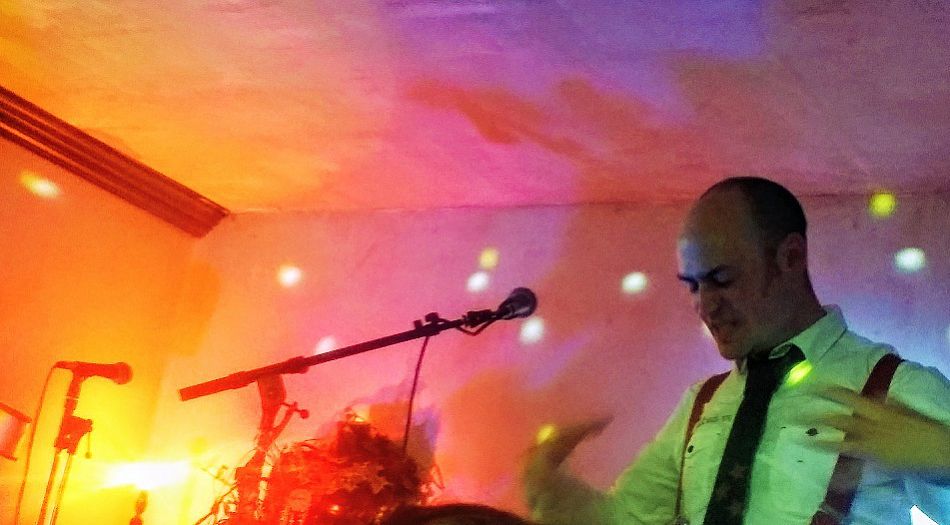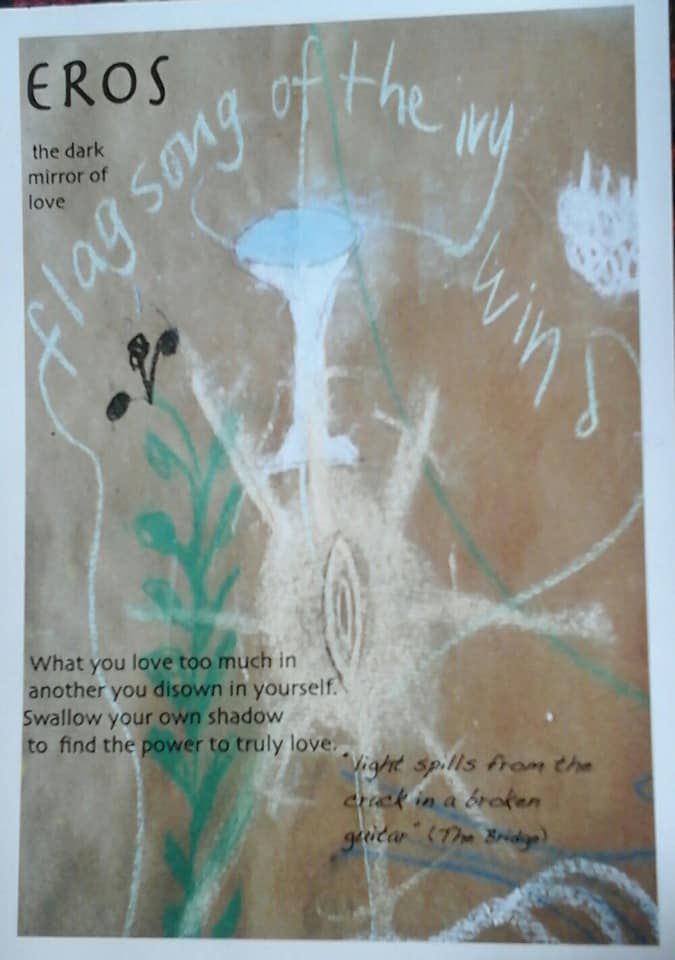Toby Chown
Toby graduated from Sussex in 2000 with a BA in English and Philosophy.

Toby's story
He is a qualified dramatherapist, working with children and families affected by drug and alcohol problems. Toby is currently researching dramatherapy and how children use art in therapy at the University of Brighton. He runs Imaginal Doorway, a therapeutic theatre company that delivers experiential and therapeutic theatre to individuals and groups.
Why did you study English and Philosophy at Sussex?
I chose philosophy because I wanted to know the meaning of life and English because I wanted to study something creative even when I was a nihilistic teenager! I came to Brighton from near Kingston, Surrey. It felt like a step into freedom and friendship, and I absolutely loved it.
What significant memory do you have of Sussex?
I auditioned for the SUDS drama society production of Equus, by Peter Shaffer. I got the main role as Alan Strang in the play at the Gardner (now the ACCA), but I had such an intense experience that I didn’t act again.
I learned a lot; for me the lesson was how to inhabit and disinhabit a character. In drama, you have to access a strong emotional identity, but there was no guidance around that process. I found acting in Equus so intense I freaked out a bit, as I was just down from London and making new friends. I was terrified of doing this part in front of people I’d only just met, of my identity breaking apart, and worried that people might think I was weird for acting in this play.
In the end, it was an amazing experience but I needed to think through what drama meant for me. I came back to it through storytelling and improvisation, and later, through studying drama therapy.
What did you do after graduating from Sussex?
Studying philosophy made me question everything. I gradually discovered the things that were meaningful to me were: creativity, nature and being of service to others.
I learnt this through working at a community garden in Stanmer Park, with adults with mental health problems and learning difficulties. I went to improvisation classes, played in bands, and carried on working in mental health. I trained for four years as a dramatherapist, which brought all these strands together – the creative and the therapeutic.
Dramatherapists draw on ritual theatre - a way of opening up stories and myths for groups to participate in and find meaning.” Toby Chown
EAM 1997
What does a dramatherapist do?
Dramatherapists draw on ritual theatre – a way of opening up stories and myths for groups to participate in and find meaning. Right now, in these times of climate change and climate grief and worry we need effective ways to reconnect to nature. Ritual theatre offers a way to do this. It allows people to bring myth to life. We need better stories about nature and our relationships with it.
I have spent seven years building a clinical practice with the Brighton Oasis Project. I‘ve learned a lot through that – I work four days a week with children aged five to 18. Through their imagery and creative process at different stages, and by helping them deal with difficult stuff – many have experienced developmental trauma – I’ve been able to see how the imagination can be a real tool for psychological healing in the right conditions.
What advice would you give your 18-year-old Sussex self?
I often ask my clients that question. I’d say difficulties and mistakes are all parts of the learning process. I have a great deal of empathy for my 18-year-old self, so I’d say don’t be so hard on yourself – seek out good friends and allies, have confidence in your imagination, keep learning and keep growing.
Tell us about Haunted Evaporations, your current creative project.
Haunted Evaporations (a book of poetry and an immersive theatre performance) came about through my desire to offer myth to an audience in a way that isn’t just a fixed re-telling of these stories, but as a pattern of images that come to life when you pour your own life into them. I think there is a concept of recirculating memory going on here – those memories in us triggered by performance and myth, holding those hauntings in mind and allowing something to transform in us.
The Greeks believed that a particular mood has a god attached to it. Myth places us in relation to a broader whole, which in our modern, fractured world we get disconnected from. Myth and storytelling can help us access that greater whole and make life seem more meaningful.

What was the inspiration behind Haunted Evaporations and how did that lead to the performance element?
My creative source was a dream where a voice told me to “learn to become a haunted evaporation.” It was one of those dreams where the voice had an unshakeable authority to it. Dreams have a numinous, feeling tone that is sometimes hard to talk about. I decided that had to be the title of the project. Many elements within Haunted Evaporations are to do with Western myth. For example, the threads of Dionysus and Orpheus go back to my time at Sussex when I read ‘The Birth of Tragedy’, by Nietzsche. I’ve always been drawn to Dionysus: that experience of being a singer in a rock band always felt quite Dionysian to me. It’s a platform to push yourself into another state.
I needed some structure to my creative process, so I started studying the Orpheus myth – how could he be the priest of Apollo and Dionysus? How does one combine that drive to experience the world through feeling, like Dionysus, with the need for structure and clarity that Apollo represents? I‘ve given academic lectures at the Centre for Myth Studies in Kent and run workshops on myth. Haunted Evaporations is a continuation of that work combined with a strong desire to bring music and poetry into the performance of myth tales.
What's next for you?
I’d like to perform Haunted Evaporations again but also run it as a workshop using a ritual theatre structure, this was something I learned through my drama therapy. I have an Unpsychology event coming up based on eco-psychology. All this work comes from realising there was a missing element from my clinical practice, which is my own personal creativity.
What three things are most important to you?
My guitar – it relaxes me and connects me to a dreamlike state of mind. My pen and notebook – they unlock a particular gateway to the psyche, of reflections, thoughts and feelings. A garden – the word paradise means walled garden. I have a small garden and allotment in Brighton. A garden is a place you can carry within you and learn from, where the human need for order meets the irresistible forces of nature. We all need to spend more time in gardens!
You might also be interested in: